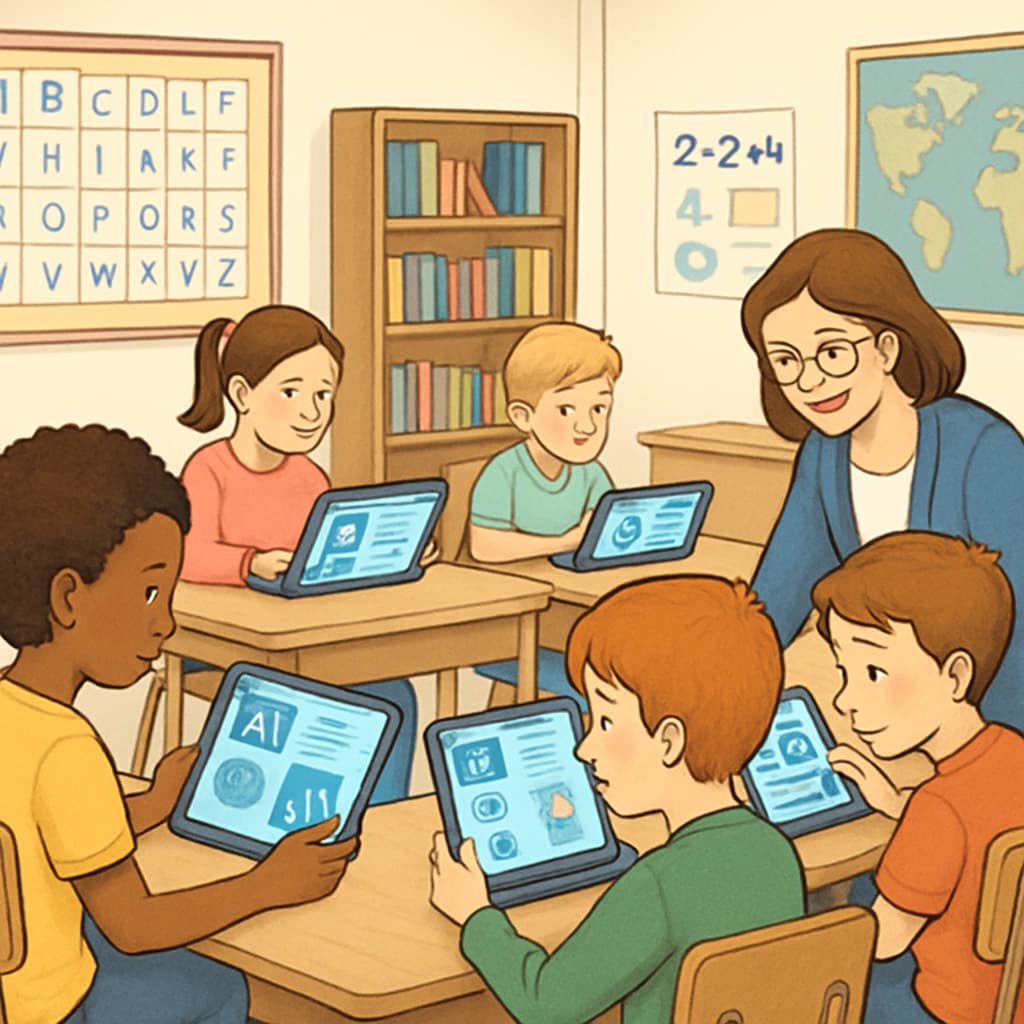The rise of AI education applications is transforming traditional teaching roles, challenging the professional value of educators, and pressuring their salaries. As technology redefines what and how students learn, educators must rethink their contributions to adapt. This article explores the intersection of artificial intelligence, teacher value, and the evolving demands of the classroom in a technological future.
How AI is Shaping the Role of Teachers
Artificial intelligence has introduced innovations in education, such as personalized learning platforms, automated grading systems, and virtual teaching assistants. These tools have streamlined administrative tasks and enhanced student engagement. However, they also raise concerns about the diminishing need for human educators in certain areas, particularly where AI can replace routine or repetitive functions.
For example, AI-powered platforms like Khan Academy and adaptive learning systems such as DreamBox provide customized lessons tailored to individual student needs. While these tools improve efficiency, they may inadvertently reduce the perceived necessity of human teachers for basic instruction.

Despite these advancements, the human element remains irreplaceable. Emotional intelligence, mentorship, and the ability to foster critical thinking are aspects of teaching that AI cannot replicate. These qualities reinforce the unique value of educators in an AI-driven educational system.
Challenges to Teacher Salaries and Professional Value
One immediate implication of AI’s integration into education is the potential impact on teacher salaries. As AI reduces the demand for repetitive teaching tasks, schools and educational institutions might reevaluate compensation structures, potentially leading to salary reductions in areas where AI can perform equally well. For instance, subjects reliant on standardized tests and straightforward content delivery may see a shift toward AI-driven teaching solutions.
However, this does not mean the end of teaching as a respected and well-compensated profession. Instead, it highlights the need for teachers to adapt and redefine their roles. Educators who embrace technology and focus on areas where AI falls short—such as individualized feedback, fostering creativity, and addressing the emotional needs of students—can secure their place as indispensable contributors to the learning process.

Adapting to the Technological Shift
To thrive in an AI-enhanced education system, teachers must adopt a proactive approach to professional development. Here are some strategies educators can use to adapt:
- Embrace Lifelong Learning: Teachers can stay ahead by continuously updating their skills in educational technology and AI tools. Platforms like Coursera and EdX offer courses specifically tailored to integrating AI in education.
- Focus on Soft Skills: Areas like emotional intelligence, mentorship, and conflict resolution are irreplaceable by AI, making these skills critical for modern educators.
- Develop Expertise in Emerging Fields: Specializing in interdisciplinary subjects like AI ethics, digital citizenship, or computational thinking can position teachers as leaders in the evolving educational landscape.
- Collaborate with Technology: Instead of viewing AI as a competitor, teachers should see it as a partner that enhances their ability to deliver meaningful, personalized education.
By adopting these strategies, teachers can not only safeguard their professional value but also contribute to shaping an education system that leverages technology for the collective benefit of students and educators alike.
The Future of Teaching: A Hybrid Human-AI Model
Looking ahead, the most likely scenario is a hybrid model where human educators and AI tools work together to maximize learning outcomes. In this model, AI handles administrative tasks and personalized content delivery, while teachers focus on the aspects of education that require human insight, empathy, and creativity.
For example, AI could analyze student performance data to identify areas for improvement, allowing teachers to spend more time on activities like project-based learning or mentorship. This partnership not only enhances the quality of education but also elevates the role of teachers as facilitators of holistic development.
As a result, the teaching profession may experience a shift rather than a decline. The emphasis will move from routine tasks to higher-order skills, making educators more valuable than ever in guiding students through an increasingly complex world.
In conclusion, while AI education applications challenge traditional notions of teacher value and salary structures, they also present opportunities for educators to redefine their roles and reaffirm their importance. By adapting to technological advancements and emphasizing their unique human qualities, teachers can ensure their place in the future of education remains secure and respected.
Readability guidance: The article uses clear language, short paragraphs, and lists to improve readability. Transition words such as “however,” “in addition,” and “for example” ensure smooth flow between ideas, while the focus remains on actionable insights for educators.


